Local SEO is a vital strategy for small businesses that want to attract customers from their local area. With more people using search engines to find nearby businesses, ensuring that your business appears in local search results can make a significant difference in driving traffic and sales. In this article, we’ll explore the importance of local SEO for small businesses and provide actionable tips to help you improve your local search presence.
Contents:
- What is Local SEO?
- Why Local SEO is Important for Small Businesses
- Google My Business: The Cornerstone of Local SEO
- On-Page SEO for Local Businesses
- Building Local Citations
- Generating Customer Reviews
- Tracking Your Local SEO Performance

1. What is Local SEO?

Local SEO (Search Engine Optimization) refers to optimizing your website and online presence to attract more business from relevant local searches. These searches typically include location-based queries, such as “restaurants near me” or “best plumber in [city].” Local SEO helps businesses appear in local search results, including Google’s local pack, Google Maps, and organic search results.
The Goal of Local SEO
The main objective of local SEO is to connect your business with people searching for the products or services you offer in your geographical area. This is especially crucial for businesses with physical locations or those that serve specific regions.
2. Why Local SEO is Important for Small Businesses

Local SEO is particularly important for small businesses because it levels the playing field, allowing them to compete with larger companies for visibility in local search results. Here are a few key reasons why local SEO is essential:
- Attract nearby customers: Local SEO makes it easier for potential customers in your area to find your business. Many people rely on Google and other search engines to find local businesses, and a strong local SEO presence ensures you are visible to them.
- Increase foot traffic: For businesses with physical storefronts, appearing in local search results can drive foot traffic to your location.
- Compete with larger businesses: Local SEO allows small businesses to appear in local search results alongside larger, national competitors. Focusing on local keywords and optimization can give you an edge over bigger brands in your region.
- Gain trust through reviews: Local SEO encourages customers to leave online reviews, which build credibility and trust with other potential customers.
3. Google My Business: The Cornerstone of Local SEO

Google My Business (GMB) is one of the most important tools for local SEO. When users search for businesses near them, Google often displays a “local pack,” which includes a map and a list of nearby businesses. Ensuring your Google My Business profile is optimized can significantly boost your visibility in local search results.
How to Optimize Your Google My Business Profile
- Complete all fields: Make sure your business name, address, phone number, website URL, and business hours are accurate and up-to-date.
- Choose the right categories: Select the most relevant categories for your business to help Google understand what you offer.
- Add high-quality images: Include photos of your storefront, products, or services to make your listing more attractive to potential customers.
- Encourage reviews: Ask satisfied customers to leave positive reviews on your GMB listing, as reviews are a major ranking factor for local SEO.
- Update regularly: Keep your profile updated with posts, events, and promotions to engage users and show that your business is active.
4. On-Page SEO for Local Businesses

On-page SEO involves optimizing the content on your website to improve its ranking in local search results. Here are some best practices for on-page optimization:
Use Location-Specific Keywords
Incorporate local keywords into your website’s content, including the city or region you serve. For example, use phrases like “best bakery in [city]” or “plumbing services in [city].” This helps search engines understand the geographic focus of your business.
Optimize Title Tags and Meta Descriptions
Your title tags and meta descriptions should include local keywords to help your website rank for location-based searches. For example, “Top-rated cafe in [city]” or “Affordable HVAC services in [city].”
Include NAP Information
NAP stands for Name, Address, and Phone number. Ensure your business’s NAP information is consistent across your website and any local directories. This consistency helps Google verify your location and increases trust in your business.
5. Building Local Citations

A local citation is any mention of your business’s NAP information on other websites. Citations from reputable directories like Yelp, TripAdvisor, and local business associations can improve your local SEO.
How to Build Citations
- Submit to local directories: List your business in local directories like Yelp, TripAdvisor, or any industry-specific directories relevant to your business.
- Ensure consistency: Your business’s NAP information should be consistent across all citations to avoid confusing search engines.
- Look for local business partnerships: Partner with other local businesses to earn mentions or links from their websites.
6. Generating Customer Reviews

Online reviews play a significant role in local SEO. Positive reviews not only build trust with potential customers but also influence your rankings in local search results. The more positive reviews your business has, the more likely it is to appear in the local pack.
Tips for Generating Reviews
- Ask satisfied customers: Politely ask happy customers to leave a review on Google or other platforms relevant to your industry.
- Make it easy: Provide direct links to your Google My Business or Yelp page, so customers can quickly leave a review.
- Respond to reviews: Engage with customers by responding to their reviews, whether they are positive or negative. This shows that you value their feedback and are committed to improving their experience.
7. Tracking Your Local SEO Performance

To measure the success of your local SEO efforts, it’s essential to track your performance. Use tools like Google My Business Insights, Google Analytics, and specialized local SEO tools to monitor traffic, rankings, and customer interactions.
Key Metrics to Track
- Local pack rankings: Check how your business ranks in the local pack for relevant keywords.
- Website traffic: Use Google Analytics to track how much traffic comes from local searches and how users engage with your site.
- Customer actions on Google My Business: Monitor insights from your Google My Business profile, including how many people request directions, click through to your website, or call your business.
- Review volume and sentiment: Keep track of the number of reviews your business receives and monitor their sentiment (positive, neutral, or negative). This will give you insights into your customers’ experiences and help you improve your services.
Conclusion
Local SEO is essential for small businesses that want to compete in their local markets. By optimizing your Google My Business profile, building local citations, generating customer reviews, and focusing on on-page SEO, you can significantly improve your visibility in local search results. With the right strategy, local SEO can drive more traffic to your website, increase foot traffic to your business, and ultimately grow your customer base.
Investing in local SEO helps small businesses stand out in their community, providing them with the opportunity to compete against larger brands and capture the attention of nearby customers. Start optimizing your local SEO today to ensure your business appears when it matters most — when potential customers are searching for services or products like yours in your area.

 Access Request Form
Access Request Form
 Afterparty RSVP Form
Afterparty RSVP Form
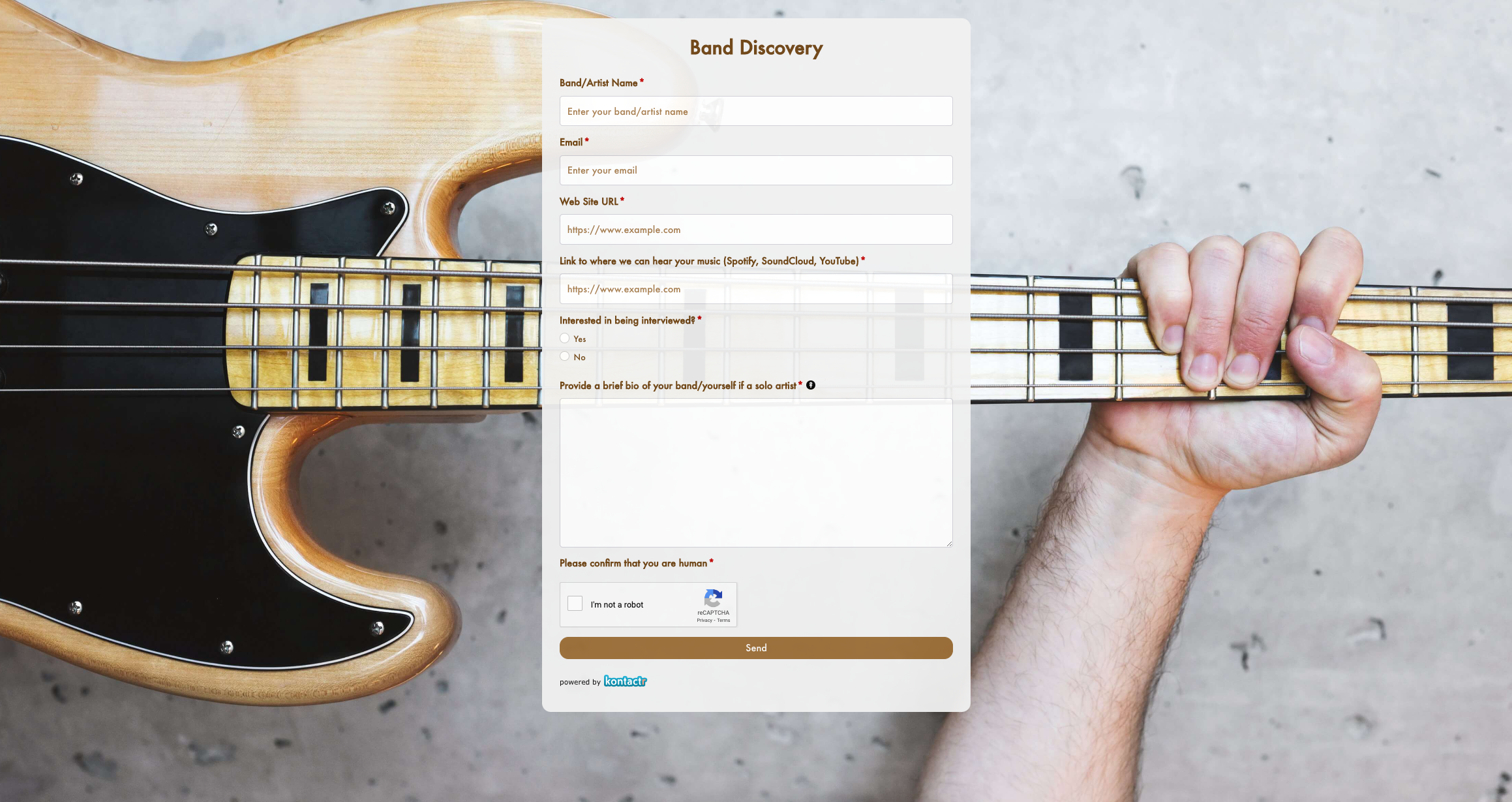 Band Discovery Form
Band Discovery Form
 Book a room Form
Book a room Form
 Booking Enquiries Form
Booking Enquiries Form
 Brochure Mailing Form
Brochure Mailing Form
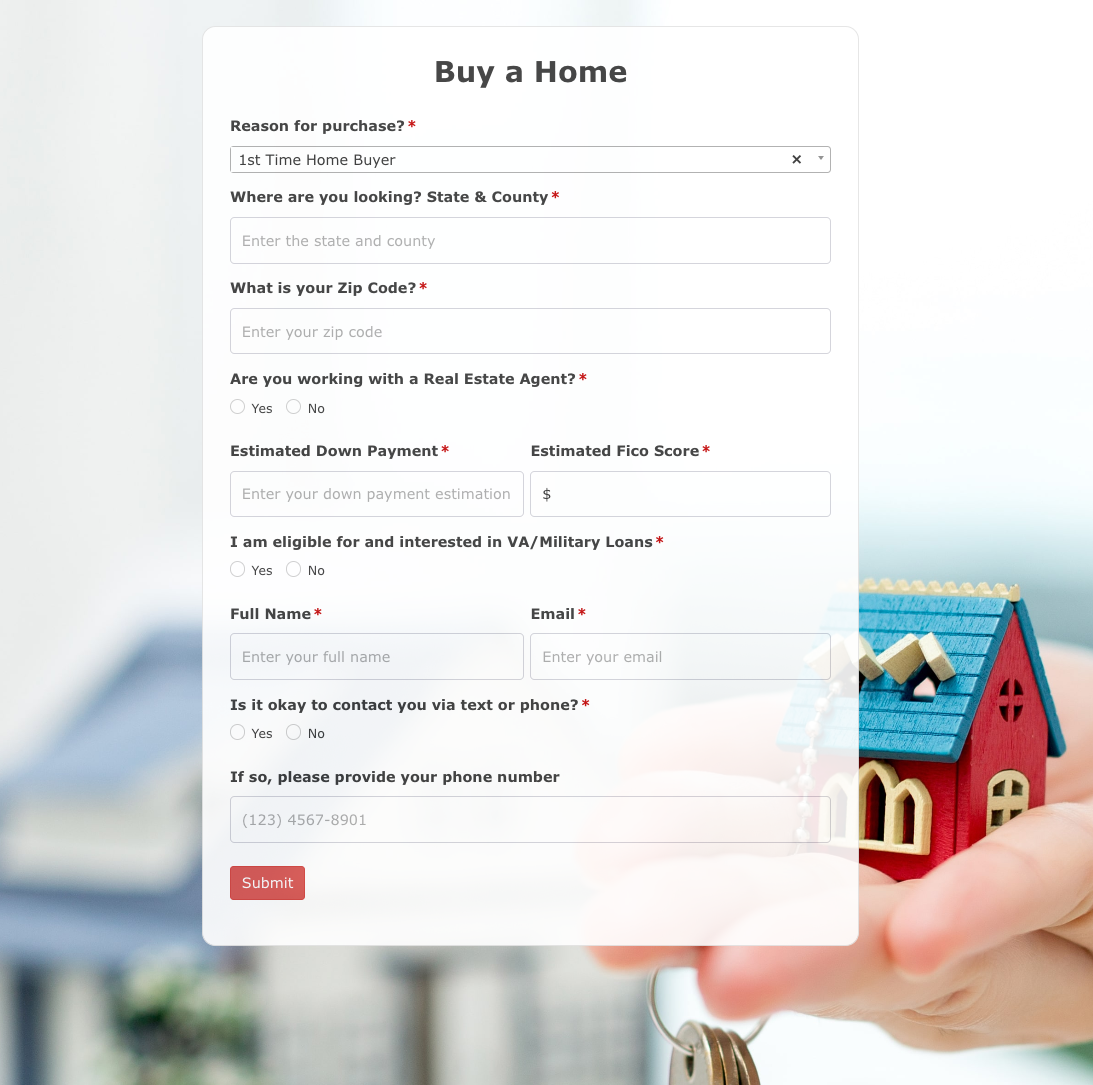 Buy a Home Form
Buy a Home Form
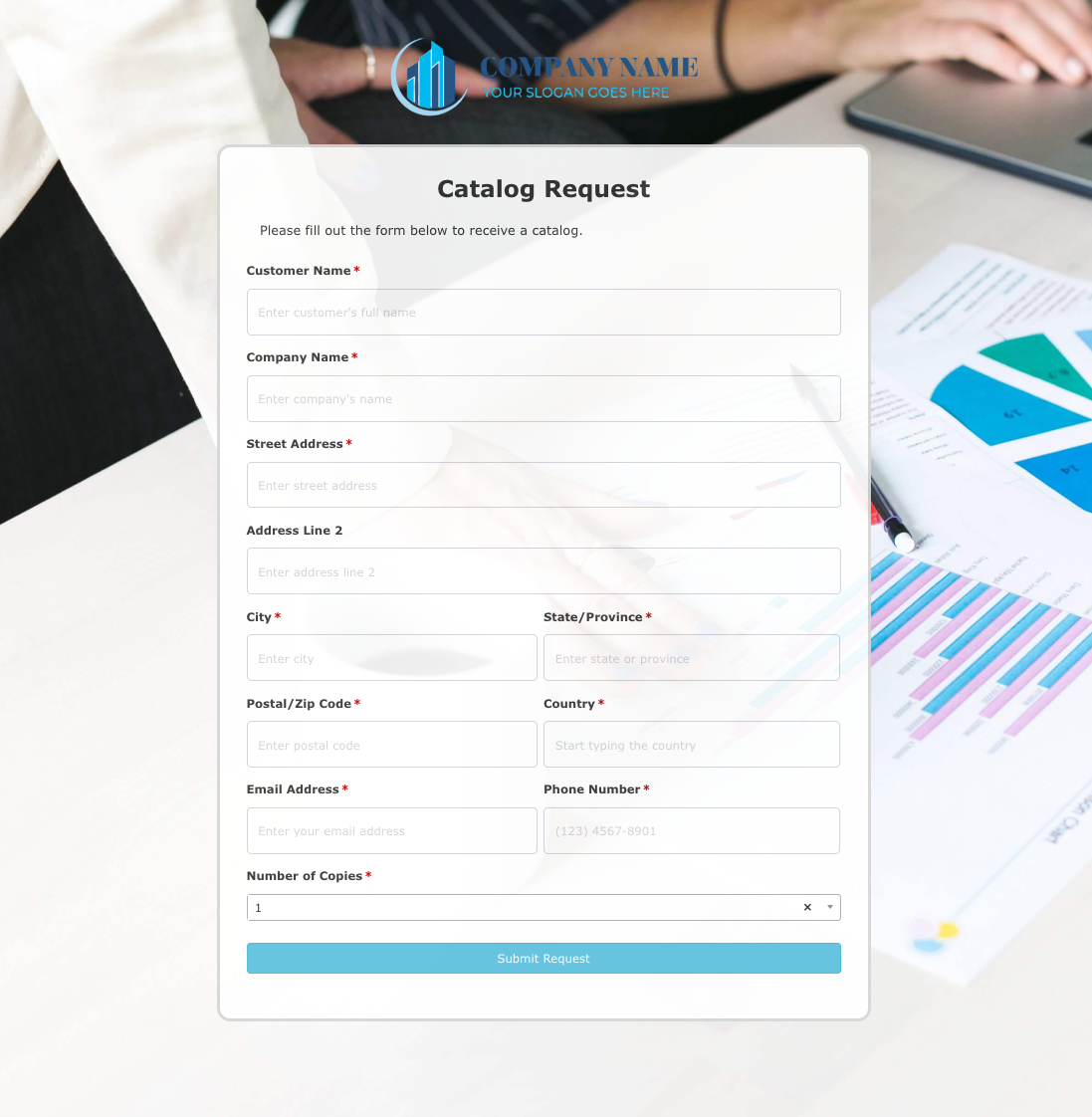 Catalog Request Form
Catalog Request Form
 Coach Lines Quote Form
Coach Lines Quote Form
 Contact Us Form
Contact Us Form
 Credit Application Form
Credit Application Form
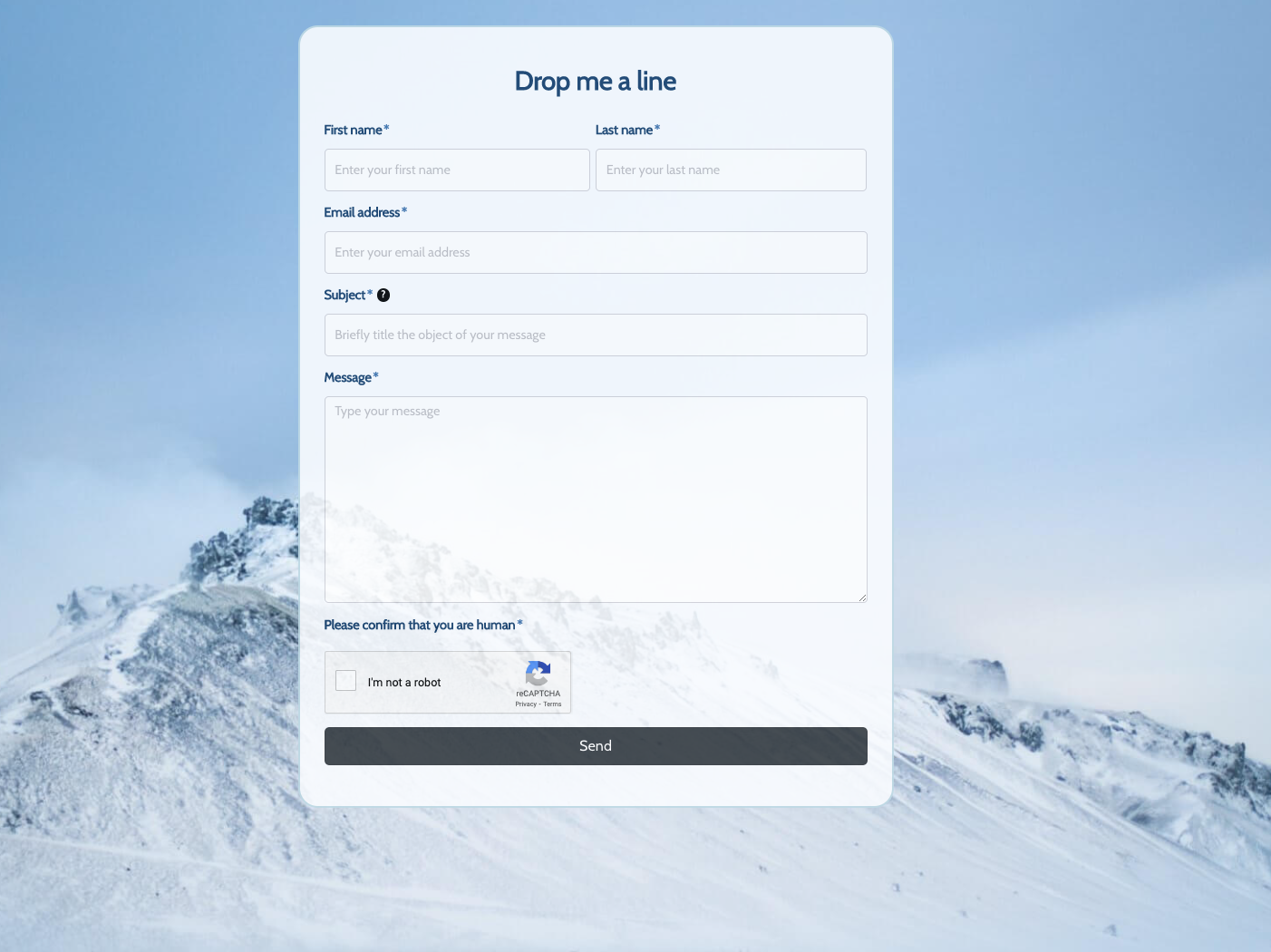 Drop me a line Form
Drop me a line Form
 Enquiry / Feedback Form
Enquiry / Feedback Form
 Got a question? Form
Got a question? Form
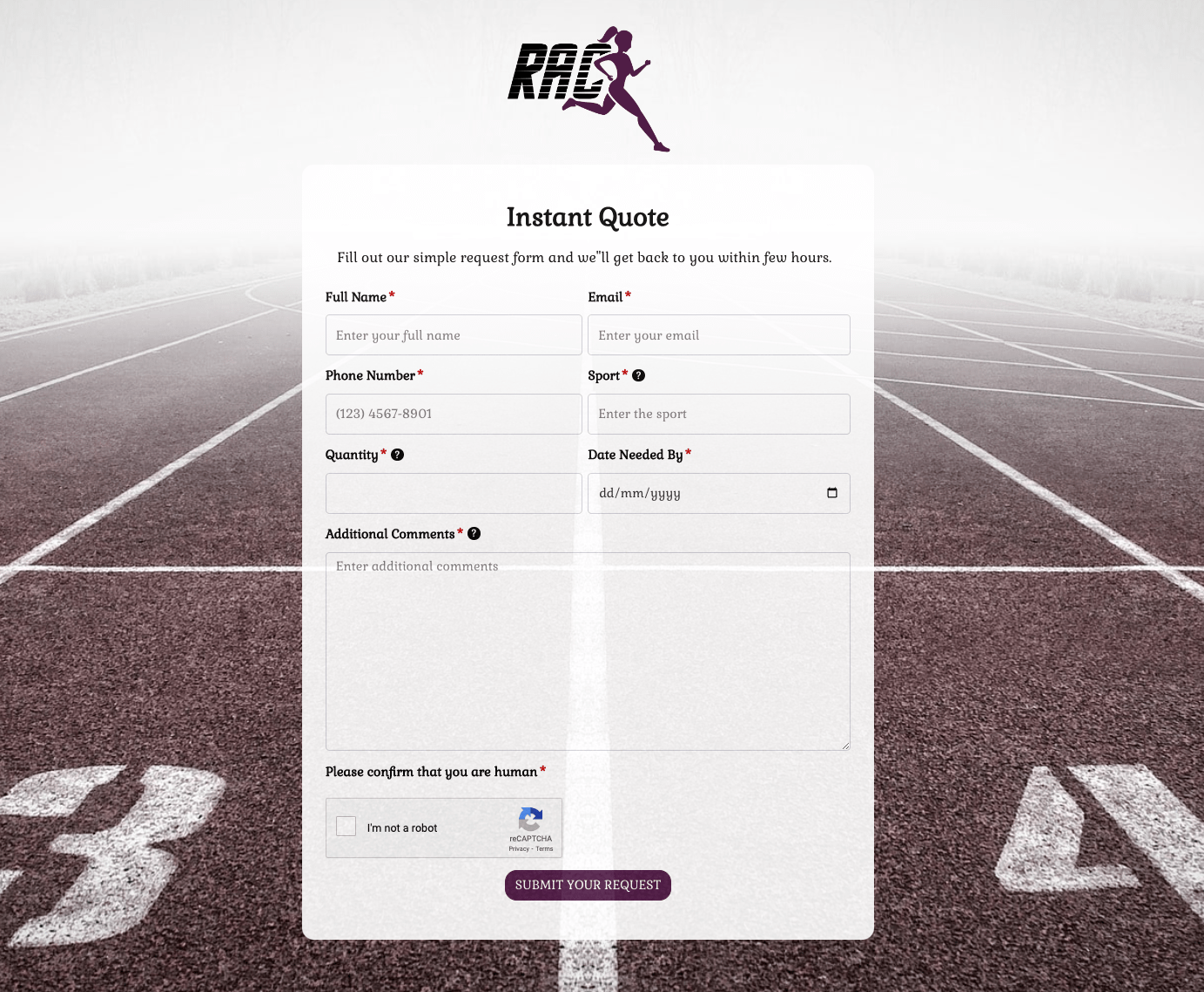 Instant Quote Form
Instant Quote Form
 Job Application Form
Job Application Form
 Language & Literacy Lab Form
Language & Literacy Lab Form
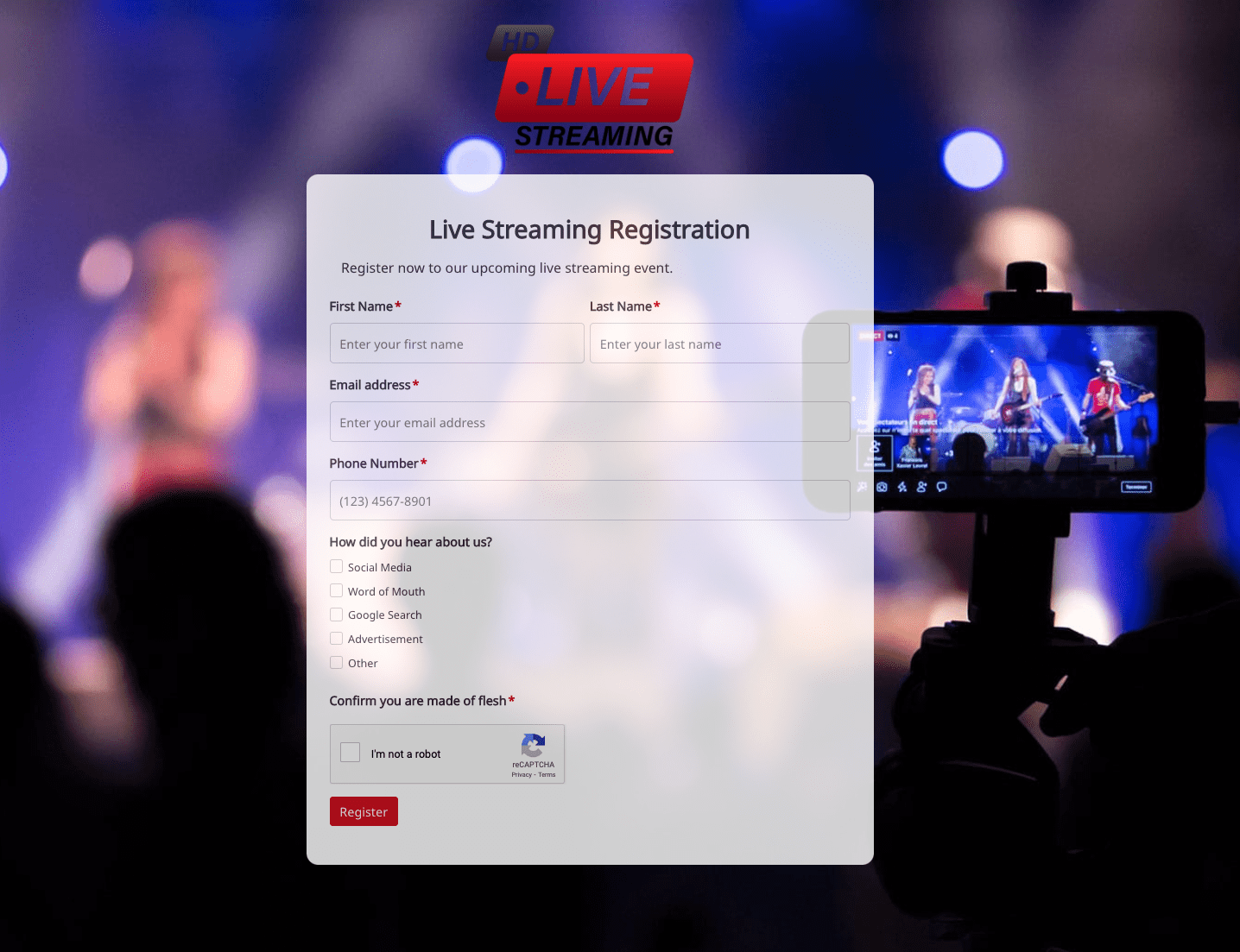 Live Streaming Registration Form
Live Streaming Registration Form
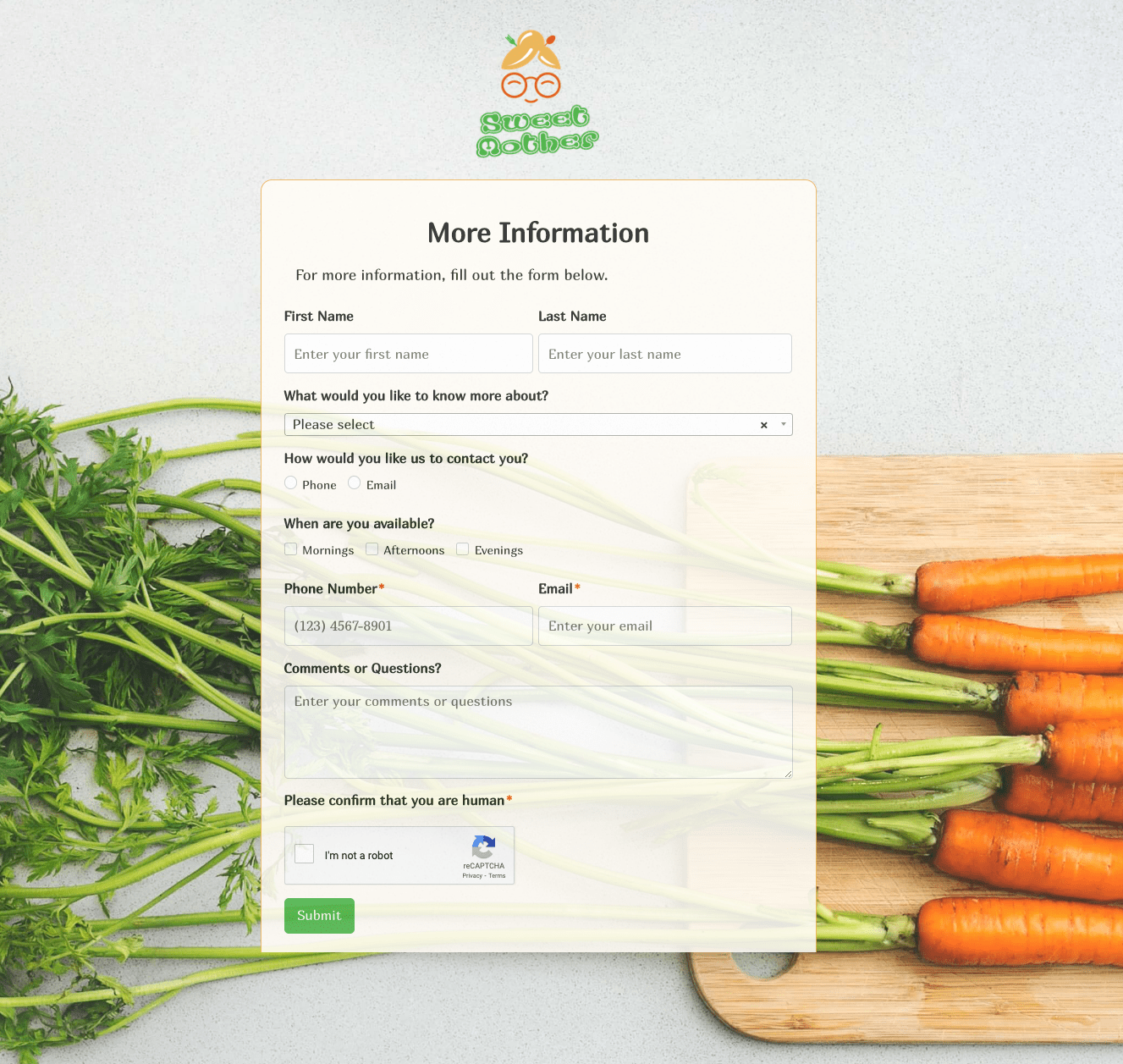 More Information Form
More Information Form
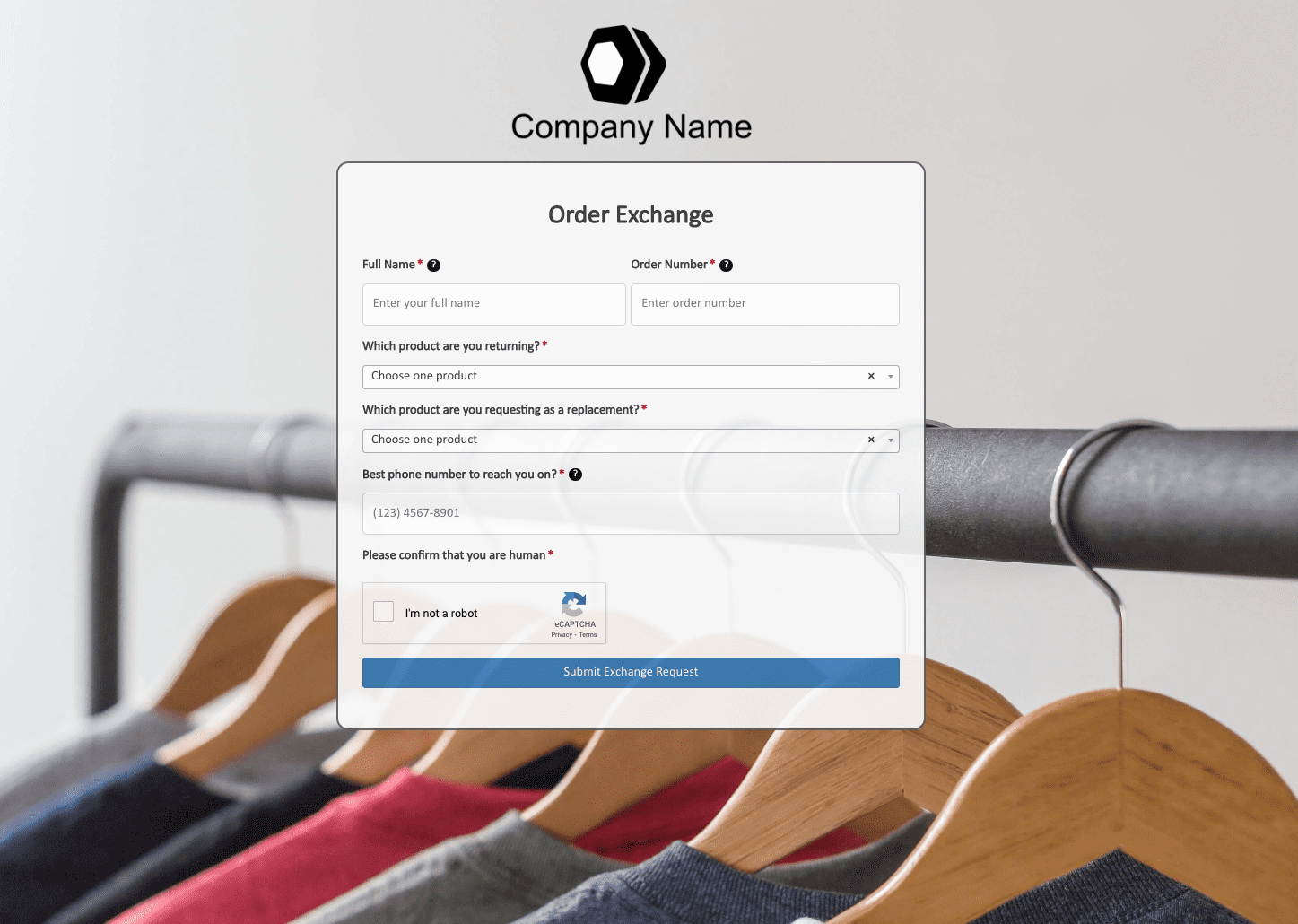 Order Exchange Form
Order Exchange Form
 Party Box Order Form
Party Box Order Form
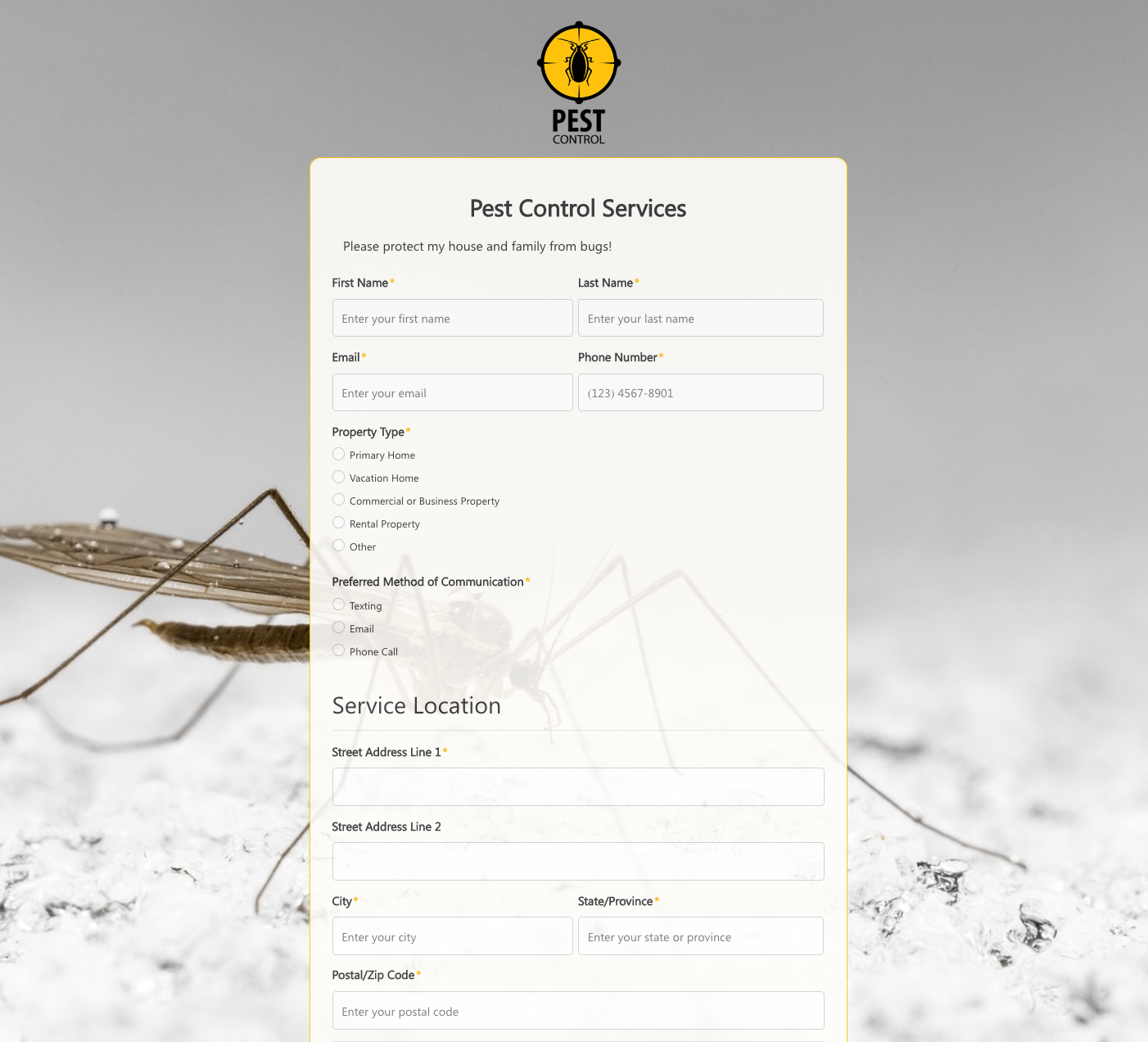 Pest Control Services Form
Pest Control Services Form
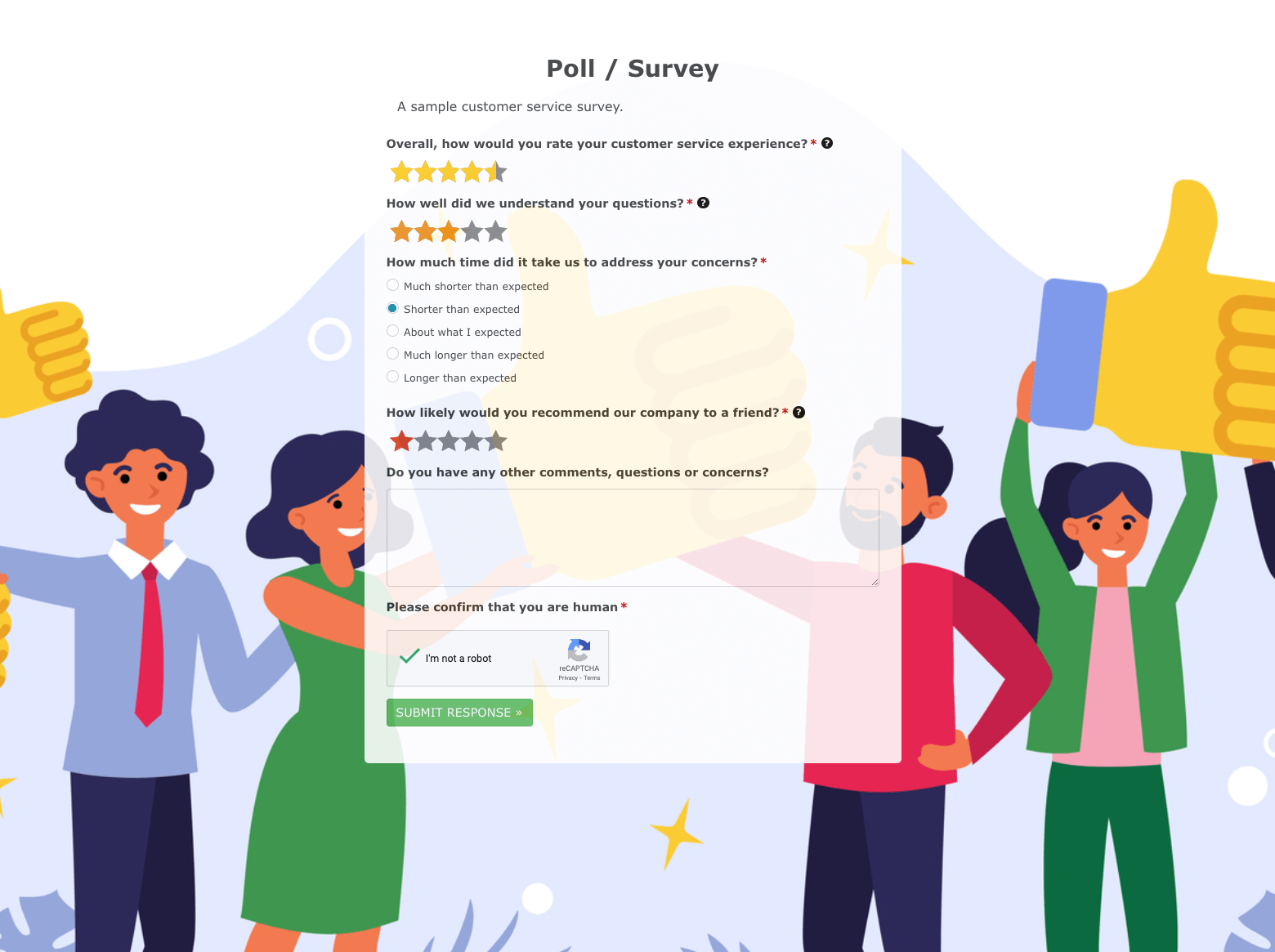 Poll / Survey Form
Poll / Survey Form
 Receive Ebook Form
Receive Ebook Form
 Refinance Mortgage Form
Refinance Mortgage Form
 Remarks / Questions Form
Remarks / Questions Form
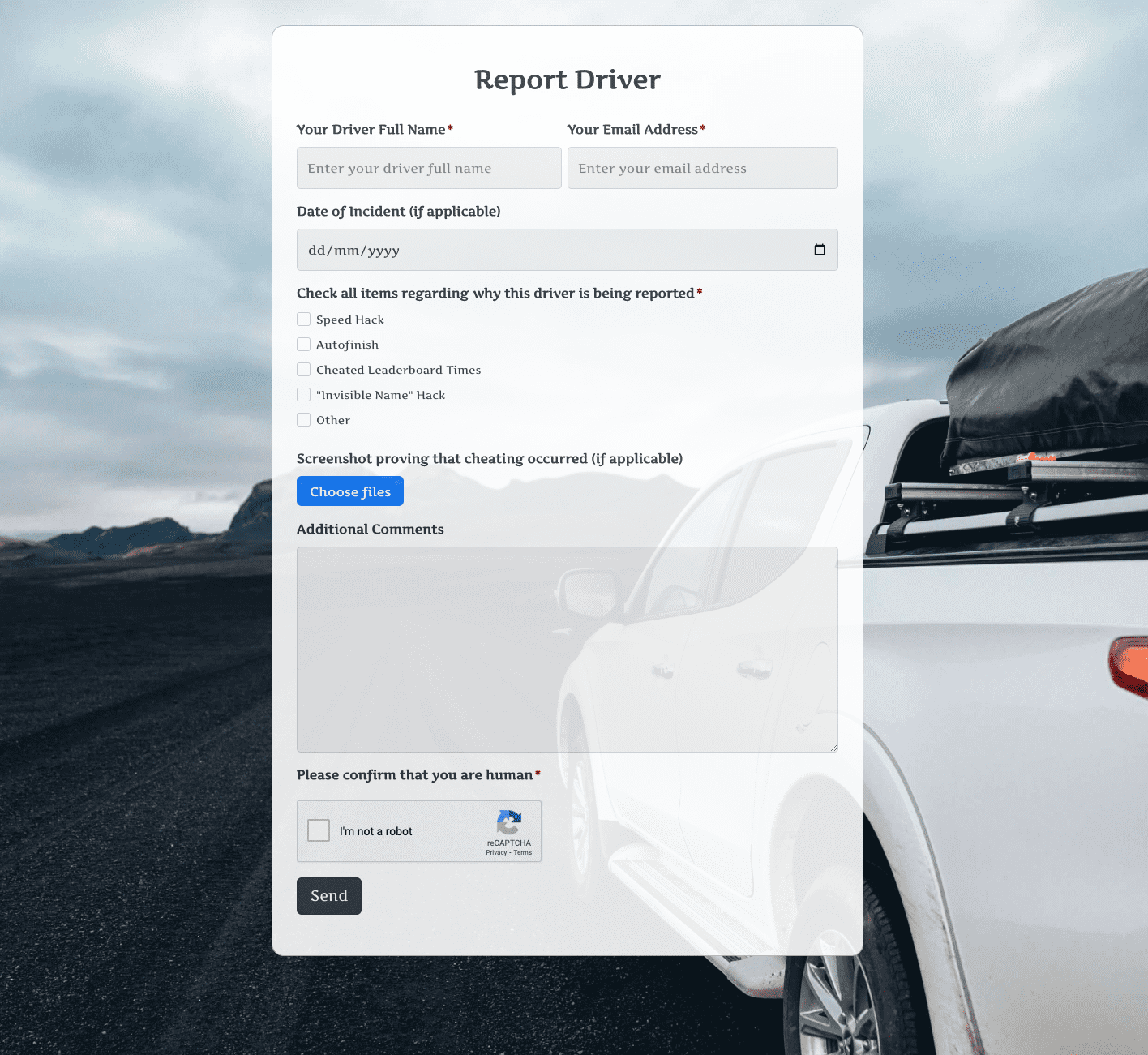 Report Driver Form
Report Driver Form
 Retreat Information Form
Retreat Information Form
 Service Enquiry Form
Service Enquiry Form
 Skydiving Registration Form
Skydiving Registration Form
 Spare Part Enquiry Form
Spare Part Enquiry Form
 Staff Application Form
Staff Application Form
 Submission Form
Submission Form
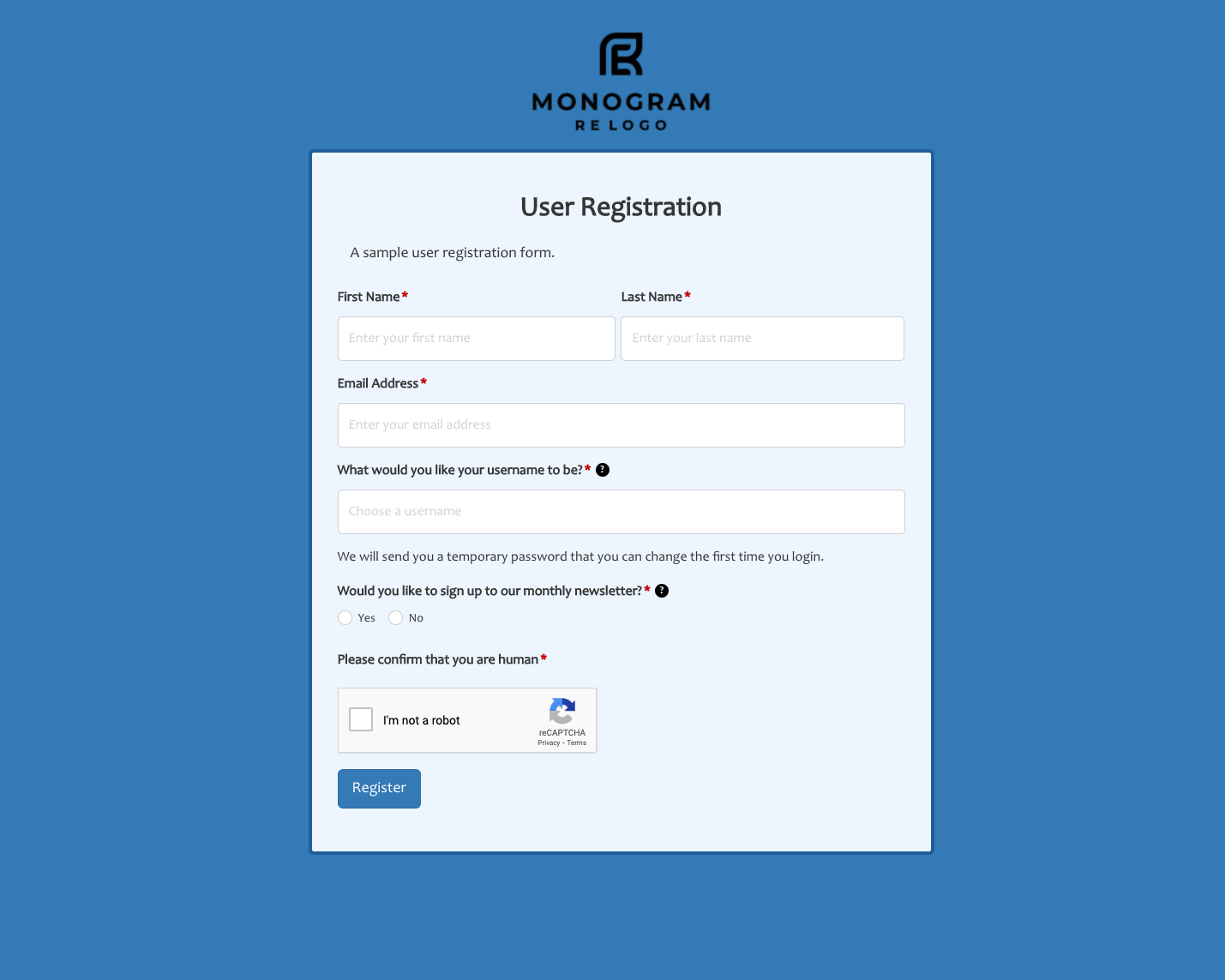 User Registration Form
User Registration Form
 Website Under Construction Form
Website Under Construction Form
 Wedding Photographer Form
Wedding Photographer Form
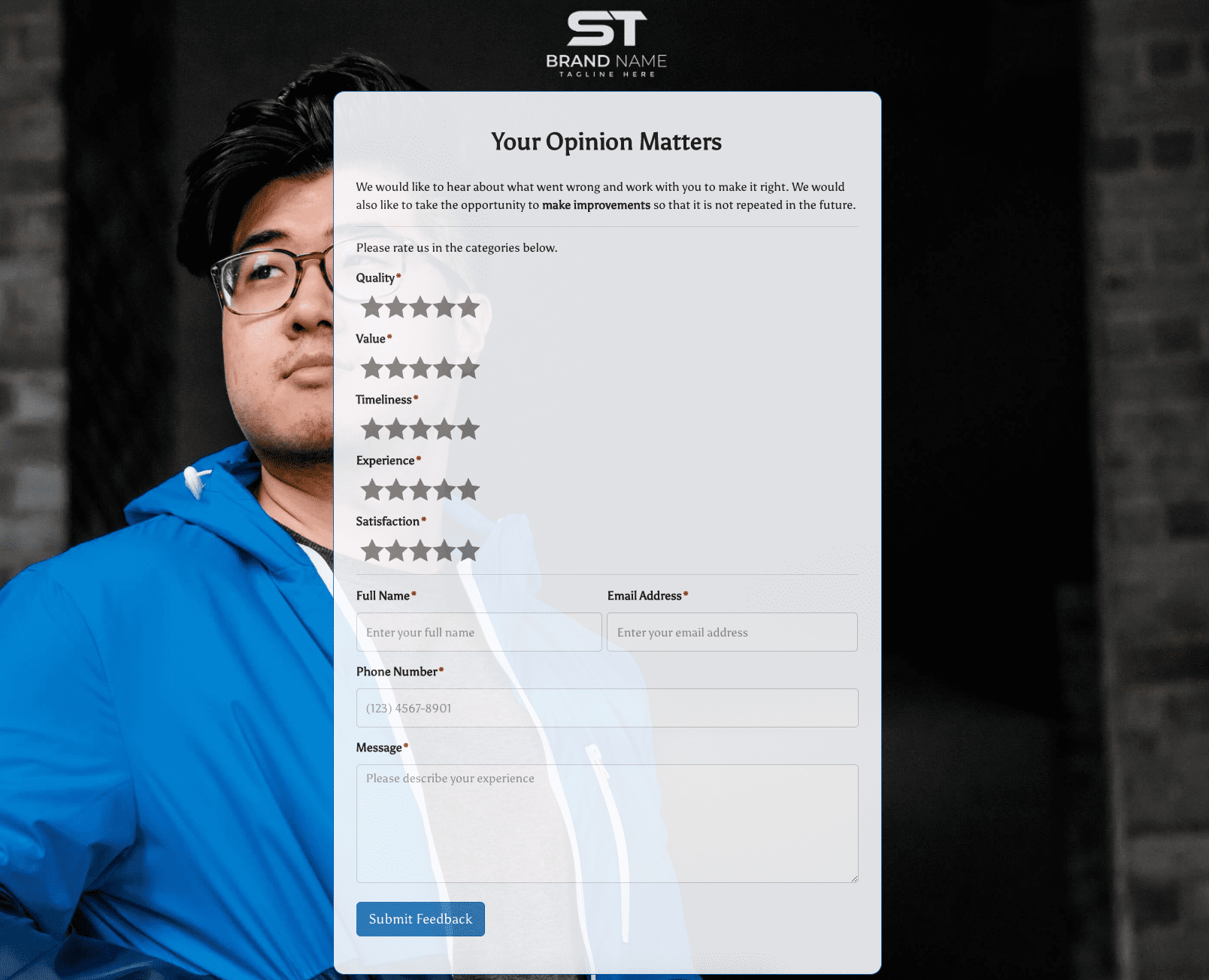 Your Opinion Matters Form
Your Opinion Matters Form
























